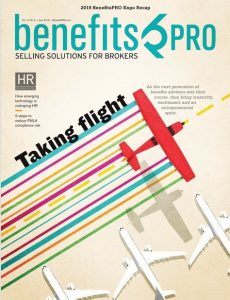 Numerous studies show taking time off leads to improved performance, better job satisfaction and less burnout. But beyond all that, do we even really need to be so busy?
Numerous studies show taking time off leads to improved performance, better job satisfaction and less burnout. But beyond all that, do we even really need to be so busy?
Americans are good at a lot of things; slowing down certainly isn't one of them.
There's plenty of damning evidence, including the fact that more than 50 percent don't even use all their vacation days each year. This, despite the fact that the number of paid days offered to U.S. workers is a fraction of those in other countries.
Related: Where workers are most, least likely to take advantage of vacation time
 BenefitsPRO editor-in-chief Paul Wilson on the need to slow down and take some time to do nothing.
BenefitsPRO editor-in-chief Paul Wilson on the need to slow down and take some time to do nothing.Why are we so afraid of time off? Research from Kimble Applications found four main reasons:
1. More stress: 27 percent said they had “too many projects or deadlines,” while 13 percent cited “the amount of work they'll return to.”
2. Pressure from bosses: 19 percent said they were “pressured by their manager not to take a vacation.”
3. Technology: Nearly half said they “check on work while vacationing” due to mobile devices and not wanting to unplug.
4. Career suicide: 14 percent said not taking vacation time “increases their chance for advancement.”
But bosses aren't the only ones applying the pressure. We also do it to each other—and ourselves. As productivity strategist Tiana Wilson-Buys writes, “It seems that the busier we are, the higher our status in the eyes of our peers. Which is probably why 'busy' seems to be the answer almost every time we ask someone how they are. … It says: 'I am in demand, I am a rare commodity.' Busyness is the status symbol of the 21st century.”
While it's easy to convince ourselves that busier means more productive, it's simply not true. Numerous studies show taking time off leads to improved performance, better job satisfaction and less burnout. But beyond all that, do we even really need to be so busy?
 Browse the digital edition of June issue of BenefitsPRO magazine.
Browse the digital edition of June issue of BenefitsPRO magazine.During this month's Face of Change interview, Megan Cook told me about a video she'd recently seen of Bill Gates and Warren Buffett in which Gates is laughing because Buffett's calendar only has a few appointments on it each week. Buffett's explanation? “Time's our most precious resource. I don't give it away, I spend it studying, thinking and then responding.”
A recent article in The New York Times focuses on the Dutch idea of niksen: “Taking conscious, considered time and energy to do activities like gazing out a window or sitting motionless,” pastimes the author says, “the less-enlightened might call 'lazy' or 'wasteful.” But something needs to change. Our constant state of busyness is having “wide-reaching consequences for our mental health, well-being, productivity and other areas of our lives.”
So consider this a friendly reminder to take some time to daydream and just do nothing. It's likely to pay off in a number of ways. (And even if it doesn't, you'll be glad you did.)
Read more:
© 2025 ALM Global, LLC, All Rights Reserved. Request academic re-use from www.copyright.com. All other uses, submit a request to [email protected]. For more information visit Asset & Logo Licensing.







